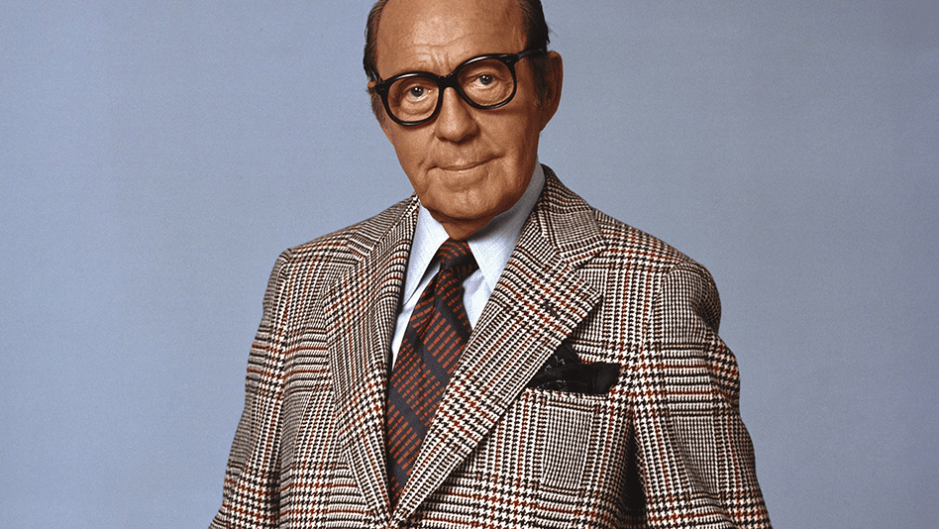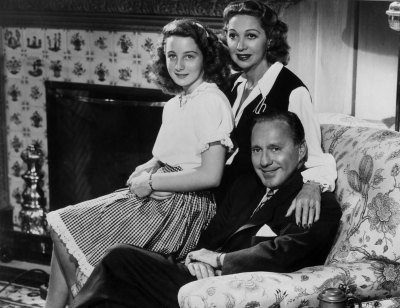
Getty Images
Jack Benny’s Daughter Remembers the Late Star: “He Was the Nicest Man I Knew” (EXCLUSIVE)
One of Jack Benny’s most famous bits began with a mugger demanding of the notoriously tight-fisted comic, “Your money or your life.��� After a laugh-filled pause, the thug repeated, “Look, bud, I said, ‘Your money or your life.’” Jack’s exquisitely timed reply: “I’m thinking it over!” Jack’s carefully cultivated persona portrayed him as a vainglorious cheapskate. In fact, the real Jack was a warmhearted, down-to-earth do-gooder, according to his daughter, Joan Benny. “He gave to a lot of charities, and he did it quietly,” she recently told Closer Weekly at a screening of her father’s classic 1942 film To Be or Not to Be at NYC’s Film Forum. “He was a man of great humility.”
While he was never a big spender, that wasn’t because he was a miser but rather a man of simple tastes. “He would be perfectly happy to drive an old car,” Joan recalled. “His favorite dining was at the local drugstore sitting at the counter, having a chicken-fried steak. He had no pretensions.” Jack’s humble roots reached back to Waukegan, IL, where he was raised as Benjamin Kubelsky, the son of immigrant parents. He was not a good student but excelled at the violin, performing in vaudeville, and entertaining troops during World War I when he was in the Navy. He began telling jokes as part of his act, and “he fell into comedy,” Joan said. “He never planned on it.”

Jack with wife Mary and daughter Joan in 1945.
With his note-perfect timing, Jack became a star on radio and television working alongside his wife, Mary Livingstone (real name: Sadie Marks), whom he’d first met at a Passover seder with Zeppo Marx in the early 1920s. They wed in 1927 and later adopted Joan. “My mother was the strict one — I was Daddy’s little girl,” she lovingly recalled. “He would never dare contradict her. When it came to my mother, he was a wuss.” While Jack’s meager violin skills became a running gag, in real life he regretted not keeping up his musical studies when his comedy career was on the rise. Once he took up violin seriously again in his 50s, “He had partial hearing loss,” Joan said. “People thought he was making mistakes to be funny but he wasn’t.”
Jack took comedy seriously, even though he wasn’t naturally witty. “He didn’t have quick comebacks, but he would painstakingly work on scripts, and he knew what was funny,” said Joan, whom he’d often consult. “On Sunday mornings before he did his radio shows, we’d drive to the beach in Malibu or Santa Monica and he’d ask me what I thought of the show. He treated me like I had a brain, which was wonderful.” After Joan was grown and started having kids of her own, Jack became a doting grandpa. “He was crazy about his grandkids,” she said, adding, “He took my son to Cape Canaveral for the moon launch!”

When Jack died of pancreatic cancer in 1974 at 80, friends and fellow comics like George Burns and Johnny Carson paid him tribute. “You’d have to say this is the only time when Jack’s timing was all wrong,” Bob Hope eulogized him. “He left us much too soon.” His daughter agreed: “He was so sweet and dear — there is a lot to be learned from him,” gushed Joan. “He was the nicest man I ever knew.”
For more on your favorite stars, pick up the latest issue of Closer Weekly, on newsstands now — and be sure to sign up for our newsletter for more exclusive news!








































